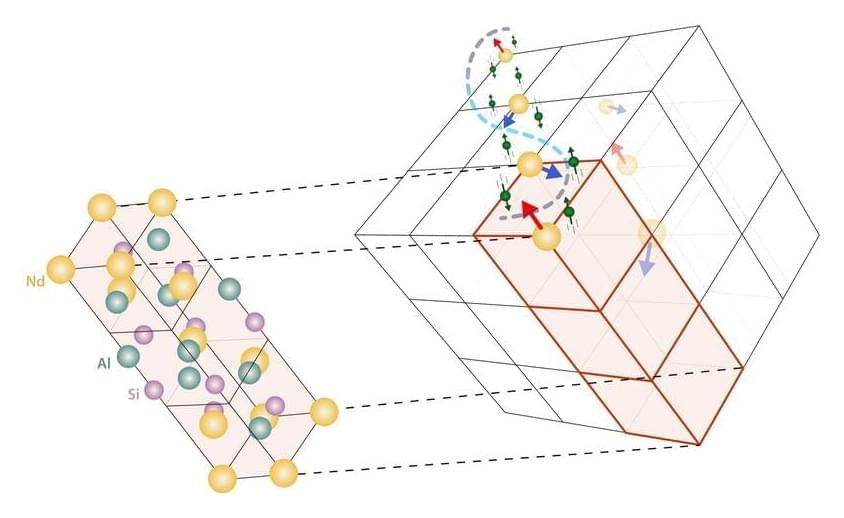An exotic form of magnetism has been discovered and linked to an equally exotic type of electrons, according to scientists who analyzed a new crystal in which they appear at the National Institute of Standards and Technology (NIST). The magnetism is created and protected by the crystal’s unique electronic structure, offering a mechanism that might be exploited for fast, robust information storage devices.
The newly invented material has an unusual structure that conducts electricity but makes the flowing electrons behave as massless particles, whose magnetism is linked to the direction of their motion. In other materials, such Weyl electrons have elicited new behaviors related to electrical conductivity. In this case, however, the electrons promote the spontaneous formation of a magnetic spiral.
“Our research shows a rare example of these particles driving collective magnetism,” said Collin Broholm, a physicist at Johns Hopkins University who led the experimental work at the NIST Center for Neutron Research (NCNR). “Our experiment illustrates a unique form of magnetism that can arise from Weyl electrons.”
